Biden believes he is RIGHT and Obama was WRONG in split over backing Israel: Joe thinks he is ‘vindicated’ after former boss dismissed his advice when he was vice president
In the days after the Hamas attack on Israel, Joe Biden flew to Tel Aviv, where he hugged Prime Minister Benjamin Netanyahu in a very public show of support, while Arab leaders in the region canceled a summit with the US president.
That literal embrace, as Israel unleashed the might of its forces on the Palestinians in Gaza, has angered some of Biden’s natural allies at home.
But in the early weeks of the conflict, Biden is said to have touted his success in influencing the Israeli government as justification for a strategy he says President Barack Obama has rejected.
He said privately that when he was vice president during Israel’s attack on Gaza in 2014, he advised his then-boss that the best way to deal with the Israelis was to hug them close rather than criticize them publicly.
According to him, that advice was rejected.
President Joe Biden hugged Israeli Prime Minister Benjamin Netanyahu after disembarking from Air Force One in Tel Aviv, Israel, on October 18.
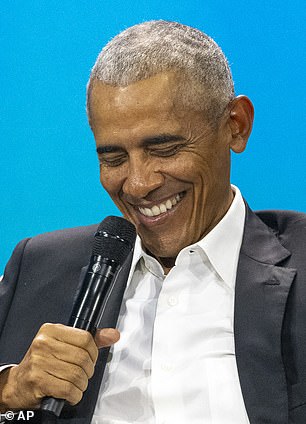
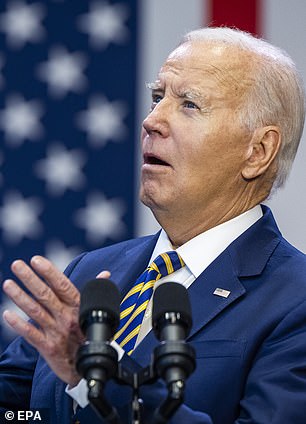
Insiders say Biden believes his approach to staying close to Israel is justified after his former boss Barack Obama favored a policy of being more publicly critical.
“If these had been the Obama years, we would have been much more critical publicly than we are now,” said a senior administration official. NBC Newswho cited four other officials who made similar points.
“And that wouldn’t work. We wouldn’t have the influence.’
They said Biden was convinced he was right in 2014 and remains so today.
They point to the success in getting humanitarian aid into Gaza and the way Israel agreed to a pause in the fighting despite concerns that Hamas could rearm as evidence that the strategy is working.
White House national security spokesman John Kirby told reporters on Monday: “The approach we’re taking with Israel and, frankly, with our partners in the region, is working.
‘It ensures that help gets to people who need it. There will be a lull in the fighting. It gets hostages out. It takes Americans out.”
By contrast, Obama officials in 2014 were open in their criticism of Netanyahu’s policies, particularly settlement construction in the West Bank.
Jen Psaki, then a State Department spokeswoman, said shortly after the 2014 Gaza offensive: “If Israel wants to live in a peaceful society, they must take steps that will reduce tensions. Continuing these types of actions would be incompatible with the pursuit of peace.”
And privately, officials made clear their hostility toward the Israeli prime minister. One called him “a chicken***” in comments in The Atlantic.
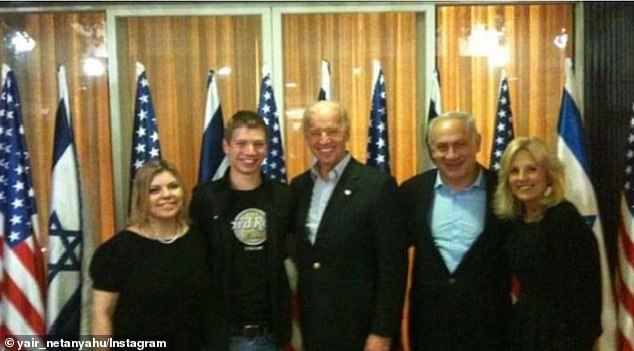
Biden has placed great value on his close relationship with Netanyahu. The then vice president is seen here in Israel in 2011 with Netanyahu and his son Yair (second from left) and with Jill Biden (right)

Israeli soldiers stand on tanks deployed on the southern border with the Gaza Strip on November 29, 2023, as a ceasefire between Israel and Hamas entered a sixth day
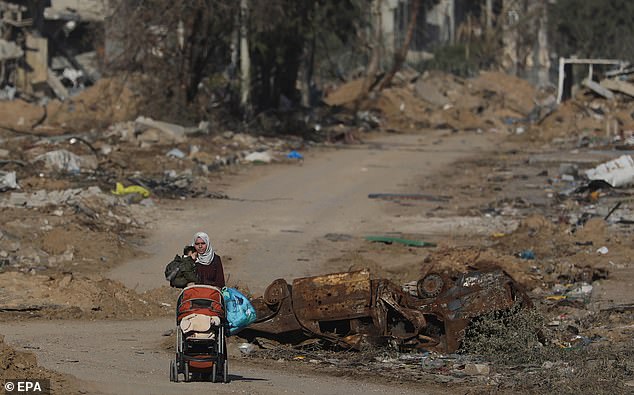
The destruction in Gaza has angered many Democrats, who want Biden to take a tougher stance on Israel by calling for a ceasefire.
The problems were exacerbated by the Obama administration’s push for a nuclear deal with Iran, which Netanyahu opposed.
At the time, Obama and his top aides were wary of being seen as too pro-Israel, fearing this would only fuel regional tensions. Biden saw things differently and made it clear that he thought the US would be more supportive of Israel’s right to defend itself.
“He didn’t think we should criticize the Israelis, and Obama did,” a former senior administration official who was part of the 2014 debate told NBC News.
Obama has continued in the same vein this time. He said that “nobody’s hands are clean” in a recent podcast interview, adding that everyone was “complicit to some extent.”
His comments are said to have confused current government officials.
Biden has built many of his warm ties with Israeli politicians over the years.
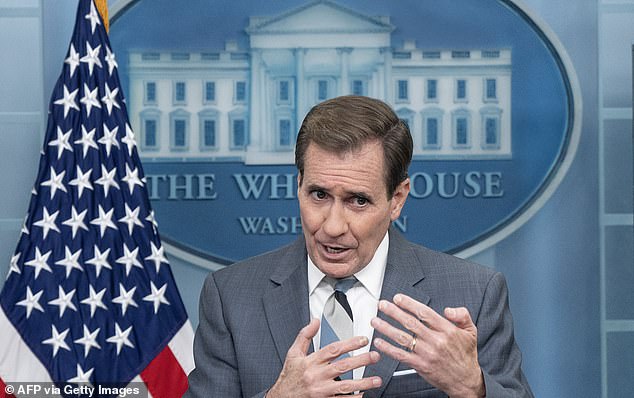
“The approach we’re taking with Israel and, frankly, with our partners in the region is working,” White House spokesman John Kirby said Monday.
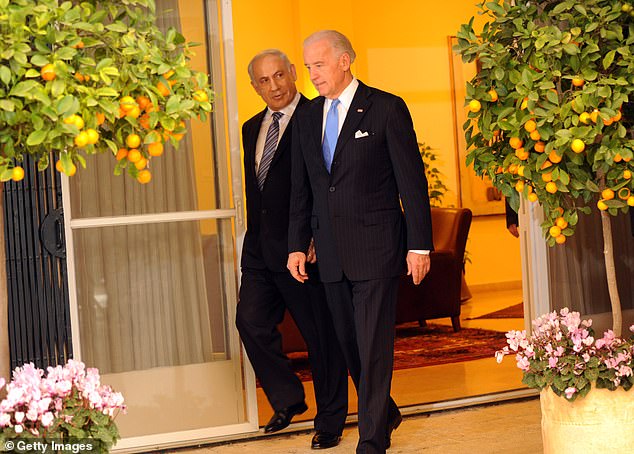
Netanyahu and Biden at the prime minister’s residence in Jerusalem in 2010
His relationship with Netanyahu dates back to the early 1980s, when Biden was a young senator and the future Israeli prime minister worked at the country’s embassy in Washington.
Even as US-Israel ties collapsed under Obama, Biden spoke warmly about Netanyahu
“We’re still friends,” Biden said at the time, using the prime minister’s nickname.
‘He has been a friend for over thirty years. I said, ‘Bibi, I don’t agree with what you’re saying at all, but I love you.’
When Hamas terrorists killed 1,200 Israelis on October 7, Biden quickly found himself arm in arm with his old friend again.
And as Israeli rockets rained down on Gaza and the death toll mounted, he publicly disputed the figures coming from the Hamas-controlled Health Ministry.
That has angered many Democrats, especially young supporters and the party’s progressive wing, who have called for an end to the attack.
